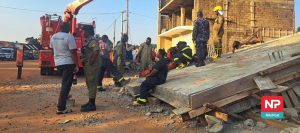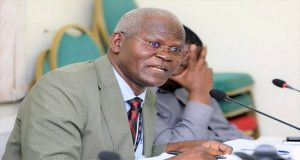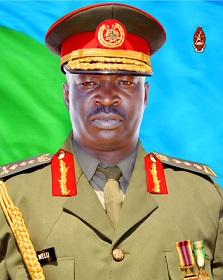
By Natalie E. Brown
At this time of year, many of us will reflect on 2022 and plan for the year ahead. And what a year it has been for Uganda, especially for public health. We rose from the worst effects of COVID-19 only to confront Ebola. Today is the International Day of Epidemic Preparedness. Thus, it is fitting that as we emerge from the worst of the current Ebola Virus Disease (EVD) outbreak, we look ahead.
While we continue our countdown to January 11, when we can declare an end to the Ebola outbreak, we must use the lessons learned to prepare for future epidemics.
There are three areas of focus to prioritize: investigate the human behaviors that led to this outbreak’s origins; create capacity for a speedier response in the future; and establish the structures, protocols, and partnerships to support research into promising vaccines and therapeutics to ensure prompt medical care during the next outbreak.
Uganda has a rich history of being a site for infectious disease research, from the Rockefeller studies on Yellow Fever in western Uganda in the early 20th century, to research that first isolated the Zika virus in the eponymous forest of central Uganda in 1947. Alongside this remarkable capacity to identify novel pathogens, the country was an early adopter of the Global Health Security Agenda (GHSA), an international effort launched in 2014 to strengthen the world’s ability to prevent, detect, and effectively respond to infectious disease threats. With U.S. support, in 2013, Uganda established a national Public Health Emergency Operations Center and strengthened a network of national laboratories ready to respond to infectious disease outbreaks.
I appreciate the strong and productive partnership that we have established with the Government of Uganda. Minister of Health, Dr. Jane Ruth Aceng, mandated at the beginning of the outbreak that Uganda would lead the response, and all parties, including a multitude of local and international partners, lent support and expertise to the Uganda-led efforts. The Government of Uganda financially supported the local governments at the epicenter of the outbreak, and the donor community helped identify creative ways to unlock resources and mobilize well-positioned organizations.
No outbreak response is ever perfect, and there are always lessons to be learned. An effective response requires early, sustained, and clear coordination and collaboration. It also requires government leadership accompanied by engagement by the international community, partners, and donors. These participants must create the space for local leaders and experts to take the helm at the community level. When international partners recognize that the host country government is in the lead, we can reduce confusion, standardize patient care, and clear the path for critical community outreach, surveillance, and lab work.
Moving forward, the global community must invest in long-term partnerships that help governments strengthen health systems. Donors must be held accountable for collaborating and coordinating with the local government and ensure that resources are used with long-term strategies in mind. By conducting thorough after-action reviews, we can learn what worked and what must be improved in future outbreaks. If we truly believe that a threat anywhere is a threat everywhere – which it is – then we have a responsibility to invest in long-term solutions that will serve not only a country in acute need, but ultimately establish a stronger global system for combatting the ravages of unchecked disease epidemics.
As we mark the International Day of Epidemic Preparedness, let us resolve to apply the lessons we have learned, so we can make Uganda, the region, and the world a safer place where every man, woman, and child can thrive.
The writer is the United States ambassador to Uganda.








